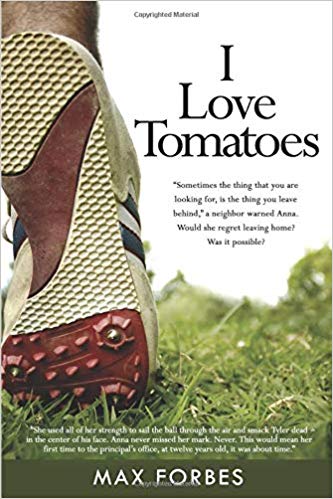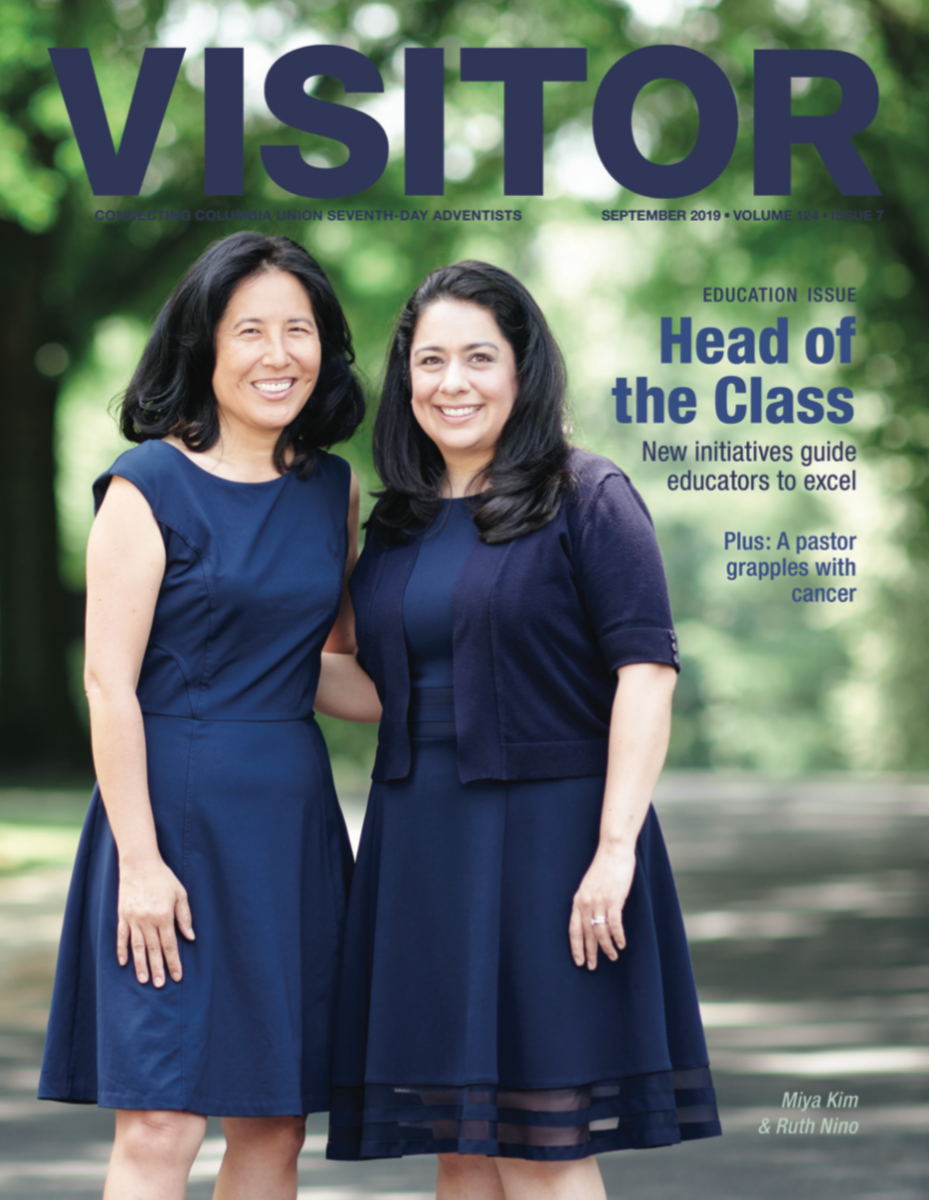
Book Release: I Love Tomatoes
 Story by Anna Bartlett
Story by Anna Bartlett
Max Forbes-Goulding, a teacher at the New Jersey Conference's Waldwick Seventh-day Adventist School, recently wrote I Love Tomatoes, a fictional story about 12-year-old Anna and her family of undocumented workers, the challenges they face and the choices she must make.
Forbes-Goulding was born in London, England to immigrant parents from Jamaica, but shortly thereafter her parents returned their family to Jamaica where she lived until she completed her education and began teaching. She spent a year teaching English in Mexico, and then immigrated to the United States when she married her husband, also the child of immigrant parents from Jamaica, and a U.S. citizen.
Her teaching career spans 30 years, including positions teaching in public schools in Jamaica, homeschooling her three now adult children, and in Adventist schools in the United States. She is currently the fourth grade homeroom teacher and the 5th and 6th grade writing teacher at Waldwick. She became a U.S. citizen herself about three years ago.
In our interview with Forbes-Goulding below, learn more about her inspiration for this book, and the challenges her characters face.
Visitor: What is the meaning behind your title, I Love Tomatoes?
Forbes-Goulding: The real reason for the title is because 12-year-old Anna, who's the protagonist of the story, works picking tomatoes. Her family follows the crop, starting down in Florida and coming up to Washington State. At the time of our story, she's in the fields picking tomatoes. This is based on a real American feature. Kids can work on farms and have full time jobs, and it is absolutely not illegal. As a teacher, I hate that fact. So the title isn’t really I love tomatoes, it really means I hate tomatoes, because look what following this crop is doing to my family.
Visitor: Undocumented workers and immigration are current highly politicized topics, what inspired you to write about this?
Forbes-Goulding: About five years ago I was listening to National Public Radio and they were featuring a writer named Barry Estabrook who wrote the book Tomatoland: How Modern Industrial Agriculture Destroyed Our Most Alluring Fruit. Estabrook shared the fact that in the United States it is perfectly legal for kids to work in the field, full-time. I did some research, and watched a video about harvesting that tells the story of some families that follow the crops across the United States and also to other regions. About 90% of my students are Hispanic, and I do know of a few people who started out as undocumented workers following the crops.
Finally, when I was teaching in Mexico, my fiancé and I would cross the border to go to Walmart, and every so often, we would see brown-skinned people who looked slightly wet in the back of trucks, because they had been crossing the Rio Grande and border patrol had caught them and were returning them to Mexico. At the time I was an immigrant, crossing over into the United States as a visitor, and happy because I was going to Walmart, but here are these people who are looking for a better life, not doing it the legal way. Their story was so different from mine, and that moved me. That’s where the idea for this book came from.
Visitor: Your protagonist Anna is described as this feisty, somewhat grumpy 12-year-old. In your 30 years of teaching, have you ever had any students like Anna and did these influence how you wrote Anna’s story?
Forbes-Goulding: I’ve definitely had students like that. The characters in the book are actually modeled after an eighth grade class that graduated this June. They didn’t know it at first. I would read bits of my work to them and they would critique it. They critiqued it better because they didn’t know I had written it. If they knew I had written it they would have said it was always great but I wanted actual feedback. They were really excited when they found out the characters were based on them. I wanted them to be very proud of their heritage while also accepting the fact that they are now US citizens.
Visitor: Anna’s family is described as needing saving, but they don't know it. What do they need saving from? And, without giving away too much of the story, how can Anna help them?
Forbes-Goulding: What they need saving from is the cycle of poverty. Her family feels like “oh, if I can just get the truck fixed, and if we can just get to the new crop early enough, then we'll be all right.” Anna sees life more in the long term. “If we keep doing this, we will keep being broke. We have to stop the cycle of poverty. And if no one else sees it, then I will see it. I will be the one.” So honestly, education is her way out of the farm. The idea is that if she pulls herself out, she will pull someone else out along with her.
This is exactly what happened in my family and many other families around me. My mom went as high as third grade in elementary school. My dad, I would say finished middle school. I don't ever remember a speech given to me or my two sisters, but we all knew we were going to college. And we all knew we were going to get our masters. And the idea was, my mother would give everything academically to the first child. And the first child would help the second child coming up, and the second child would help the third, and so on, which is what we did. So what happened in Anna’s life, her resolve to help her family break the cycle, was the same thing in my family.
Visitor: In your book, Anna has a tough decision to make. What decisions or situations do you find children of undocumented workers face?
Forbes-Goulding: The decision they have to make is, do I invest in an education, or do I get a job? I had a student who was part of Barack Obama's Dreamer program. His dad died of pancreatic cancer, making the son the man of the house. The decision that boy had to make was do I go to college, or help my mom who cleans homes? He made a decision with the support of several other churches to go to school. Now I teach his sister, and he makes sure that he gets home in time to get her off the bus and helps her with her homework.
Visitor: For those who read your book, whether they are undocumented workers and their children or not, what message are you trying to send to your readers?
Forbes-Goulding: That every person is created in the image of God, and every person has a life and has value. And isn't it better to help someone along instead of discouraging them? I am such a keeper of rules and laws. I'm not asking you to break the law and I don't believe in breaking the law. But if you see someone who needs help, give the help, just give it, your life will be better for it. Pay it forward.
To find more information about the book, click here.
 Read these other stories from the September 2019 Visitor:
Read these other stories from the September 2019 Visitor:
- Feature: Head of the Class
- Kleyton Feitosa: What Cancer Brought to My Life
- Editorial: Have you Thanked Your Principal Today?
- Book Release: Bible Principles for Growing Disciples
- Book Release: I Love Tomatoes
- Music Release: My Home

Add new comment